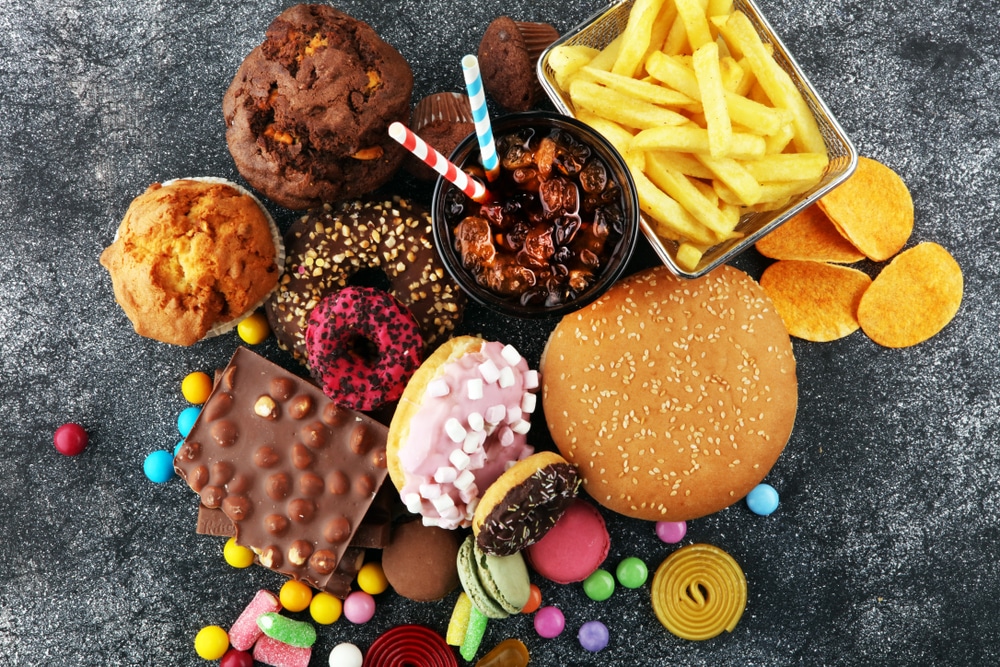
A study was carried out to see if lack of sleep made people crave junk food, the researchers from 3 German universities, the University of Birmingham and 2 neurological research centres also in Germany. The study was funded by a German research organisation called Deutsche Forschungsgemeinschaft.
It was an experimental study involved male participants undergoing a series of test related to diet, sleep and brain activity. They wanted to understand how sleep loss may be related to eating more food and gaining weight. They recruited 32 healthy men, aged 19 to 33, with a body mass index between 21 to 26.
They performed several sleep and food related experiments on them using a series of high-resolution MRI brain scans, blood tests to access the hormone levels in the blood and asked them about their hunger levels. They all visited a clinic for three appointments, 1 screening appointment and 2 experimental sessions with either normal or sleep-deprived night separated by 1 week. The first appointment was a screening session where the participants were invited to the clinic to learn about what the study would entail, and body measurements were taken.
Patients were not told if they would have a normal night sleep or be sleep deprived on their first experimental visit. This was so they could not top up their sleep.
The patients underwent their first experimental session starting at 8pm where they all ate the same meal and same amount. Some participants could go home and have a normal night’s sleep straight after, but some were kept awake. Both sides were not allowed to eat or drink throughout the night.
Participants that were the normal sleep group were fitted with a sensor to measure sleep and wake times until the next morning. They were then sent home and instructed to return in the morning for an MRI scan of the brain.
The sleep deprived group were kept at the clinic and spent the night wake watching movies and playing games.
Both groups were asked how hungry they felt the following morning using the 7-point likert scale. They were then asked how much money they would pay to get some snacks or non-food items. They were invited to bid money on these items. Lastly, they had blood samples taken to measure the levels of hormones responsible for controlling hunger.
The research found participants rated themselves similarly in hunger in the morning whether they had a normal sleep or not. The sleep deprived participants had higher levels of a hormone that is known to control hunger compared with the group that had slept normally. The patients that were sleep deprived showed more signals from the part of the brain that is responsible for controlling decision making and emotional responses, combined with signals from the part of the brain responsible for releasing hormones that control hunger. They also were willing to spend more money on food.
The researchers state that “the results indicate that increased food valuation after sleep loss is due to hedonic [reward-seeking] rather than hormonal mechanisms. They go onto state that a full night’s sleep compared to a sleep deprived night, increased the subjective value of snack food rewards compared to non-food rewards”.